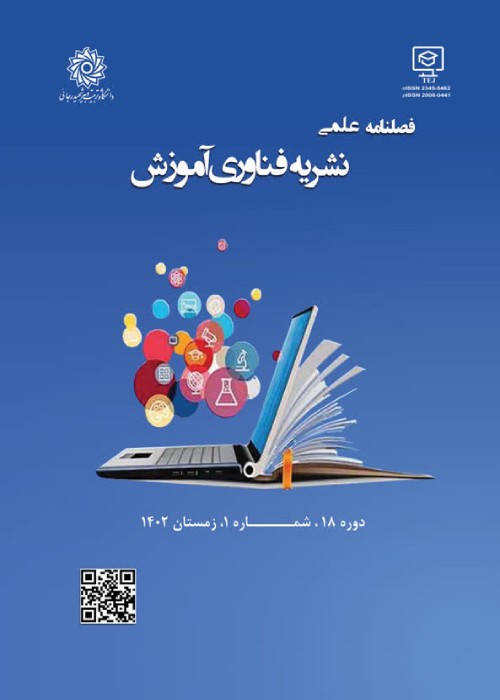Explanation of the challenges of the digital divide over the implementation of educational justice
With the growth of new information technologies, educational systems have also undergone changes in terms of using new technologies in teaching and learning. New educational technologies have the potential to provide free education around the world and to achieve educational justice. But in developing and underdeveloped countries, due to their many challenges, a digital divide has been created between the rich and the poor cities which, in itself, has led to educational injustice. Accordingly, the purpose of this study is to explain the challenges of the digital divide on the implementation of educational justice in order to solve the problems leading to the realization of educational justice in the country.
The present study is a descriptive-analytical study. Therefore, it is a qualitative research and philosophical analysis. The research approach is analytical and critical. The method of data collection is library- documentary. The research population includes all the studies that had examined the digital divide and educational justice and by investigating the background, 30 research studies directly related to this context were found. The data analysis method was researcher-oriented. The validity of the data was obtained based on the analysis of experts' views. The reliability of the study was in line with the findings of other studies.
The findings of the study indicate that various challenges have affected the digital divide and educational injustice. The challenges that have caused the digital divide in the country's education systems are as follows: governance-infrastructure challenges, educational, cultural and economic challenges. The governance-infrastructure challenge has been analyzed based on the Communication and Information Technology Development Index and shows inequality in the sub-indicators of access, usage and skills among the provinces of the country. Thus, the central provinces are in the top rank and the deprived and border provinces are in the last rank in all three sub-indicators. The educational challenge is also based on components such as the low level of digital literacy of teachers and families, centralized educational management, educational policy-making and reliance on traditional teaching methods. The cultural challenge is also based on components such as gender, race and language. Economic challenge is also based on components such as: low income of families, poverty, priority of earning a living on learning and expensive educational technology tools. Solutions to overcome each of these challenges can be listed as follows: raising the level of digital literacy in students and parents, strengthening the motivation to compete and strive, emphasizing e-learning methods and using new technology in teaching. Also, some other solutions such as upgrading the bandwidth of using the Internet, investing in human resources and developing the internal Internet such as providing Internet access points in every school and library, providing low-interest loans for public equipment in rural areas and urban slums, measures to reduce equipment prices (tax exemption, subsidies provision) and low-interest loans for low-income families, free web education sessions for the deprived, providing free Internet address for all students.
The findings show that the digital divide can be examined at three levels: local, national and global. At all three levels, four elements are involved in the digital divide, namely education, economy, governance, and culture. Therefore, in order to get out of the digital divide and achieve educational justice in the country's educational system, we must first identify the gaps, and then take action to eliminate them. Therefore, the country's education system can achieve its ultimate goal, which is a fair society, when it can eliminate the problems facing justice.
- حق عضویت دریافتی صرف حمایت از نشریات عضو و نگهداری، تکمیل و توسعه مگیران میشود.
- پرداخت حق اشتراک و دانلود مقالات اجازه بازنشر آن در سایر رسانههای چاپی و دیجیتال را به کاربر نمیدهد.




